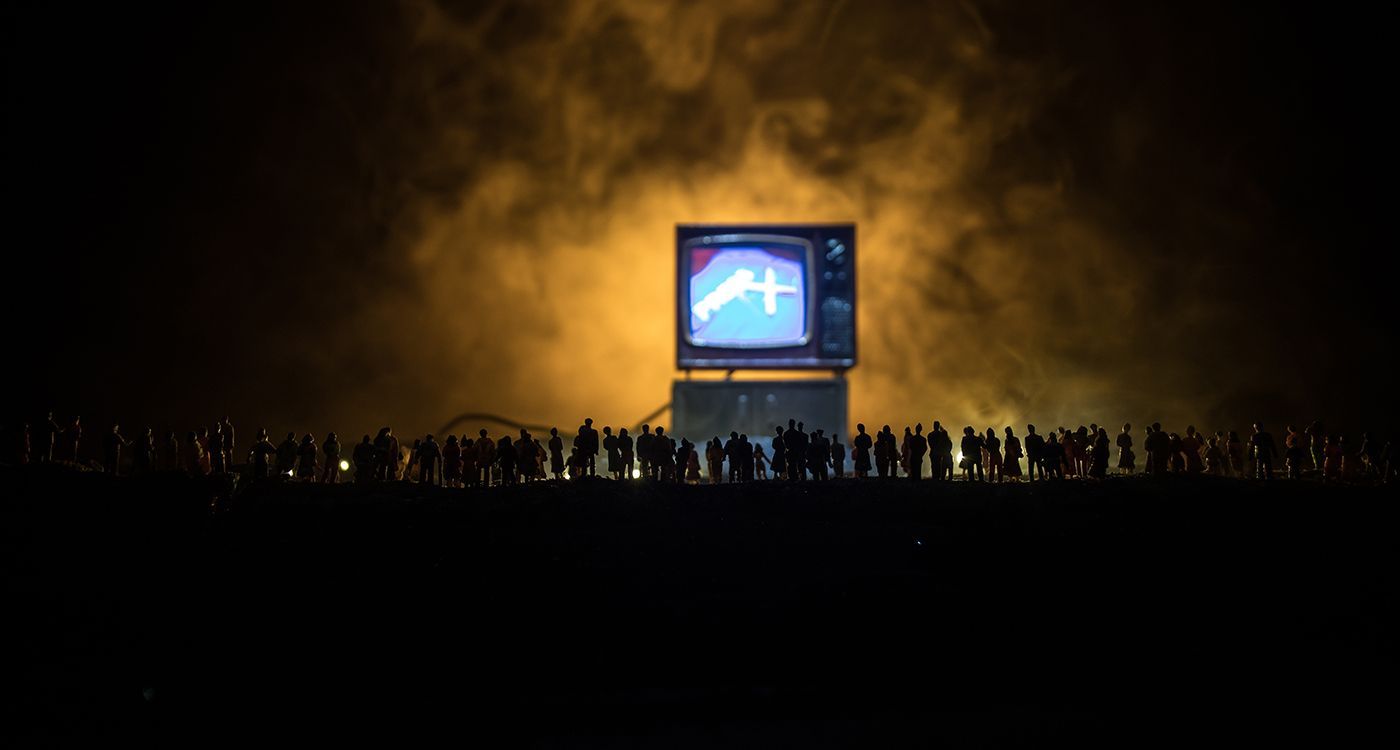
The attitude of the supporters of the pro-Iranian Moumanaa axis or so-called “axis of resistance” is puzzling. There's no doubt that the shock they are experiencing is overwhelming and hard to process. The ongoing war is undoubtedly pushing them to cast accusations in all directions, in a desperate attempt to restore some dignity or shift blame on others, since blaming Israel is futile and does nothing to make up for their losses.
Amid the ostrich-like policy unfortunately adopted by most media outlets in Lebanon, local media channel MTV stood out as the boldest in addressing the Israeli attacks, while adhering to all standards of credibility, transparency and respect—acknowledging the victims as martyrs and describing the events as aggressions.
However, MTV’s political stance has remained consistent since its launch in 1991 and its return after the forced shutdown in 2009. It was, in fact, the first TV station to raise the issue of Hezbollah’s weapons, well before the Syrian army’s withdrawal. Today, with the events unfolding in Lebanon as a result of Hezbollah’s “support war” for Gaza, no one can expect it to stray from this path—one whose consequences it had long dreaded and expected, and which we are witnessing now.
What is truly astonishing is the level of madness reflected in the accusations surrounding this issue. The campaign began with a report about the presence of armed individuals in shelters for displaced persons, implying that the channel was indirectly encouraging strikes against these locations. However, MTV quickly took action by removing the report from its website, demonstrating respect for the opposing viewpoint.
However, this situation has sparked increased criticism of the station, even resulting in it being labeled a "Mossad channel," with all the associated security, ethical and legal ramifications. The media anchor and journalist Marcel Ghanem’s sharp critiques of Hezbollah and its policies have come under fire, leading to a barrage of accusations.
What made matters worse was the targeting of Al-Qard Al-Hassan centers in Lebanon, which unfortunately coincided with a report previously aired by MTV discussing the economic fate of depositors in Al-Qard Al-Hassan amid the crisis. Harsh critics claimed that the channel incited actions against Al-Qard Al-Hassan, as if Avichai Adraee was waiting for MTV's breaking news to decide with the Israeli military leadership where to strike next.
The issue is not what the channel's opponents claim, namely that it compromises the safety of the displaced and aligns itself politically with Israel. MTV is not the one putting people at risk; rather, it is those who carry weapons and hold meetings close to civilians. MTV does not align itself with Israel; for the past thirty years, it has advocated for a single legitimate authority over illegal arms within the Lebanese state.
The real issue is that Hezbollah's supporters could only direct their anger at the channel, despite knowing that the events that have unfolded are not a direct result of the report.
Those who successfully smuggled in the explosive beeper devices and radio equipment that were detonated simultaneously, managed to reach Sayyed Hassan Nasrallah and the Radwan unit's meeting, targeted most of Hezbollah's leadership and missile stockpiles, dismantled the party's military and financial infrastructure within days, did not need anyone to inform them.
If the channel is accused of being an informant or an agent, as some critics suggest, it’s important to note that all the collaborators arrested in the past decade have come from within Hezbollah, and not a single collaborator among the public political opponents of the pro-Iranian faction has been apprehended.
While we understand the urge to vent frustration, it’s essential to remember that the media cannot be muzzled, as freedom is far too powerful to be managed in a repressive manner—especially during a time of collapse for those who believe they can rule by force.


Comments